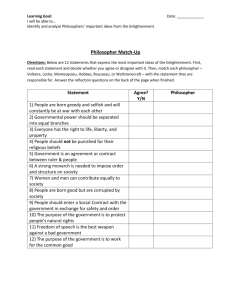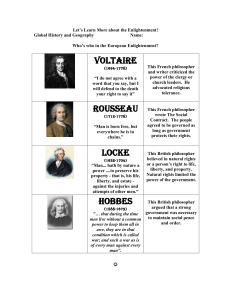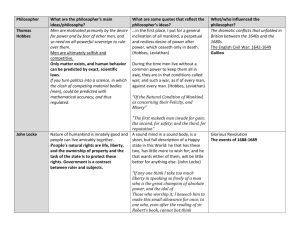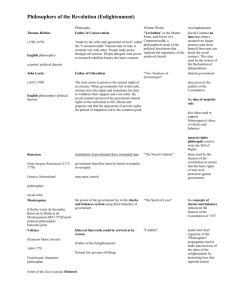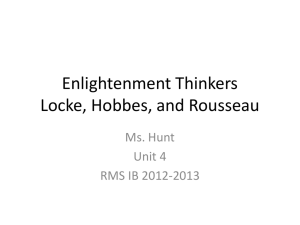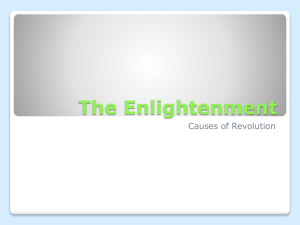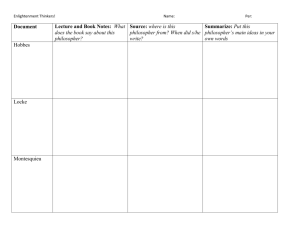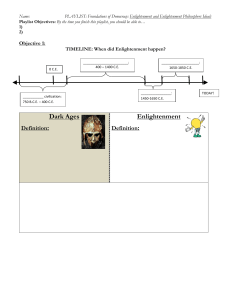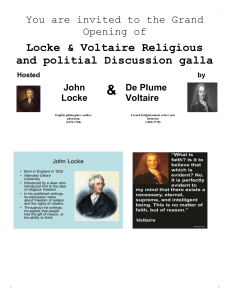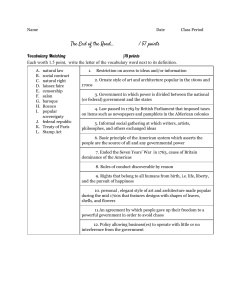Modern European History
advertisement
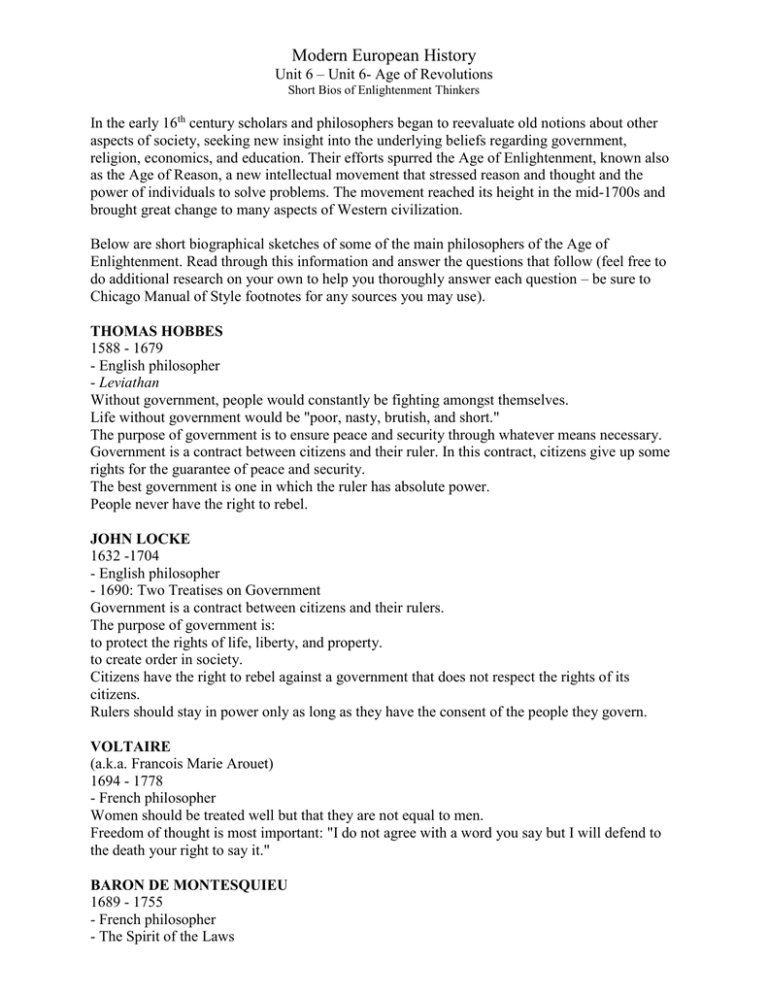
Modern European History Unit 6 – Unit 6- Age of Revolutions Short Bios of Enlightenment Thinkers In the early 16th century scholars and philosophers began to reevaluate old notions about other aspects of society, seeking new insight into the underlying beliefs regarding government, religion, economics, and education. Their efforts spurred the Age of Enlightenment, known also as the Age of Reason, a new intellectual movement that stressed reason and thought and the power of individuals to solve problems. The movement reached its height in the mid-1700s and brought great change to many aspects of Western civilization. Below are short biographical sketches of some of the main philosophers of the Age of Enlightenment. Read through this information and answer the questions that follow (feel free to do additional research on your own to help you thoroughly answer each question – be sure to Chicago Manual of Style footnotes for any sources you may use). THOMAS HOBBES 1588 - 1679 - English philosopher - Leviathan Without government, people would constantly be fighting amongst themselves. Life without government would be "poor, nasty, brutish, and short." The purpose of government is to ensure peace and security through whatever means necessary. Government is a contract between citizens and their ruler. In this contract, citizens give up some rights for the guarantee of peace and security. The best government is one in which the ruler has absolute power. People never have the right to rebel. JOHN LOCKE 1632 -1704 - English philosopher - 1690: Two Treatises on Government Government is a contract between citizens and their rulers. The purpose of government is: to protect the rights of life, liberty, and property. to create order in society. Citizens have the right to rebel against a government that does not respect the rights of its citizens. Rulers should stay in power only as long as they have the consent of the people they govern. VOLTAIRE (a.k.a. Francois Marie Arouet) 1694 - 1778 - French philosopher Women should be treated well but that they are not equal to men. Freedom of thought is most important: "I do not agree with a word you say but I will defend to the death your right to say it." BARON DE MONTESQUIEU 1689 - 1755 - French philosopher - The Spirit of the Laws Tyranny can be avoided by dividing and sharing political power among a diversity of classes and groups. To prevent the abuse of power it is necessary to separate the power of government into: legislative: make the laws executive: enforce the laws judiciary: interpret the laws JEAN JACQUES ROUSSEAU 1712 - 1778 - Swiss philosopher - The Social Contract Although born good, people are corrupted by society. Government should be a contract between people, not between the people and a ruler. People should give up some freedom in favor of the majority's decision. People are equal and have a right to individual freedom. Women should be educated to be good mothers. Answer each of the following questions in complete spelling and grammar in a Google Doc and share it with me. 1. What are the differences between Hobbes' and Montesquieu's views of government? 2. According to Locke, what are the roles of government and of individuals in society? 3. What are the main philosophical differences between Rousseau and Hobbes? 4. Do you agree with Voltaire that people have the right to say anything? 5. Which philosopher's ideas do you agree with most? Why? 6. Which ideas do we see in practice today? 7. What are some historical examples of these ideas? 8. Which ideas can be associated with certain countries or political ideologies -- democratic, socialist, autocratic, communist? 9. To what extent should these ideas be practiced?

